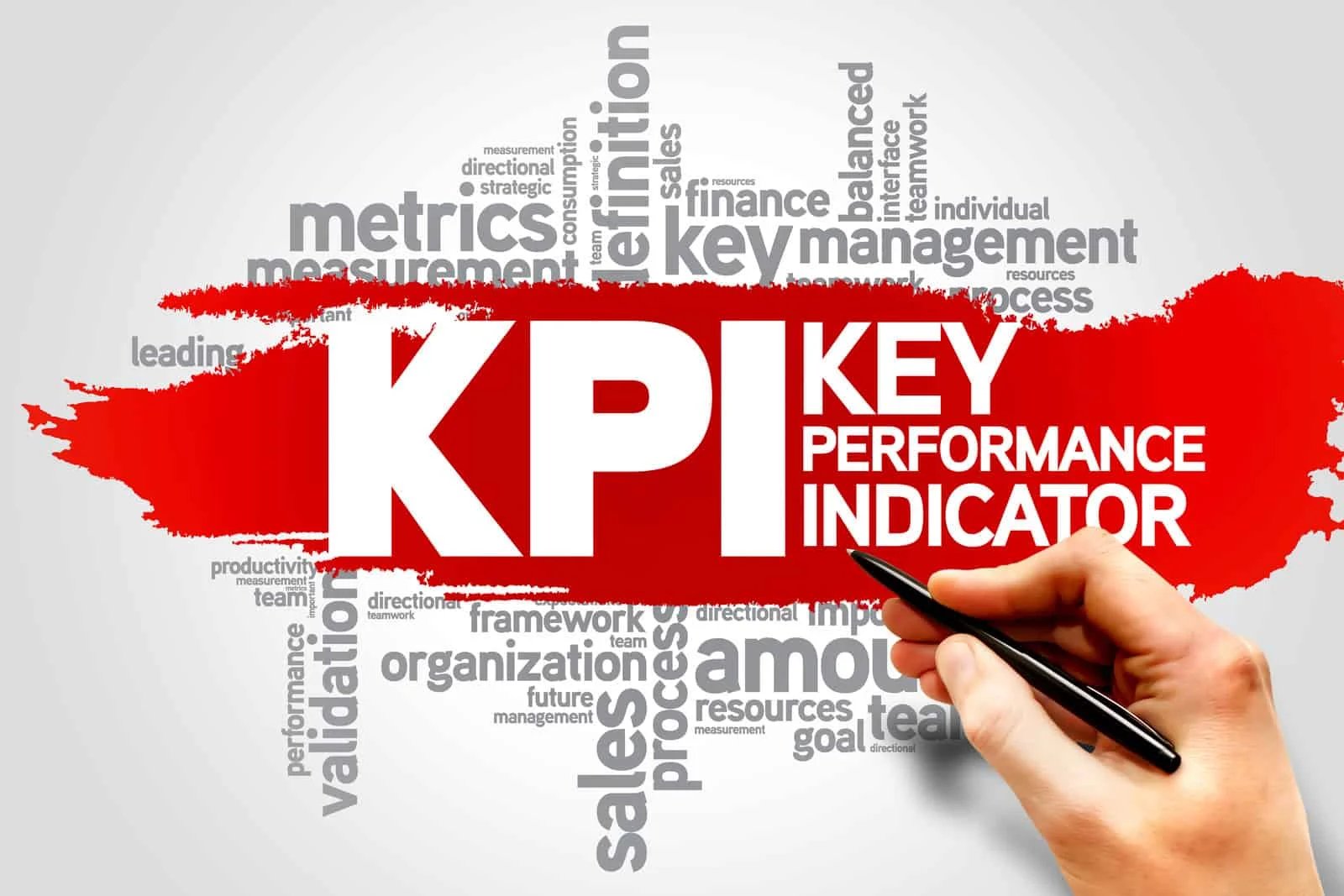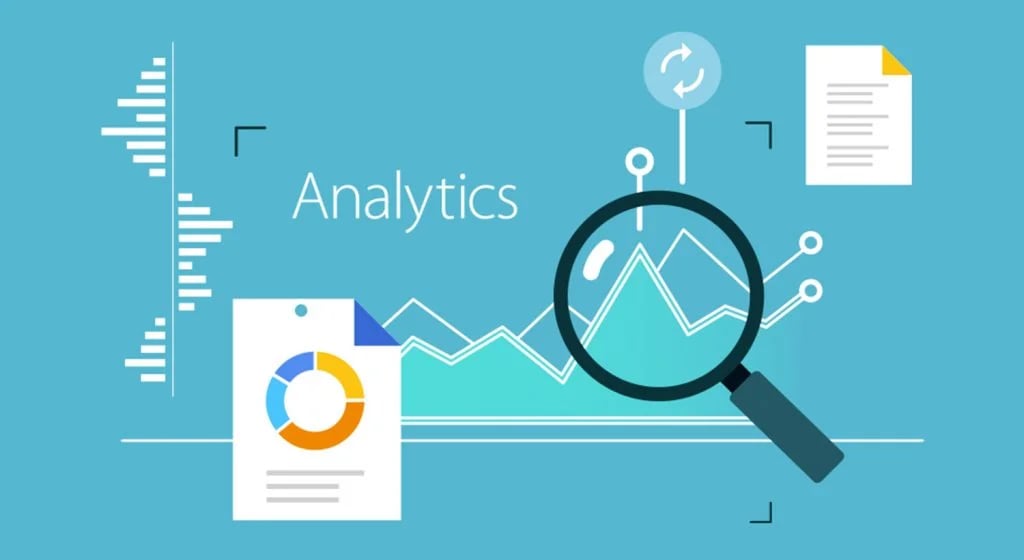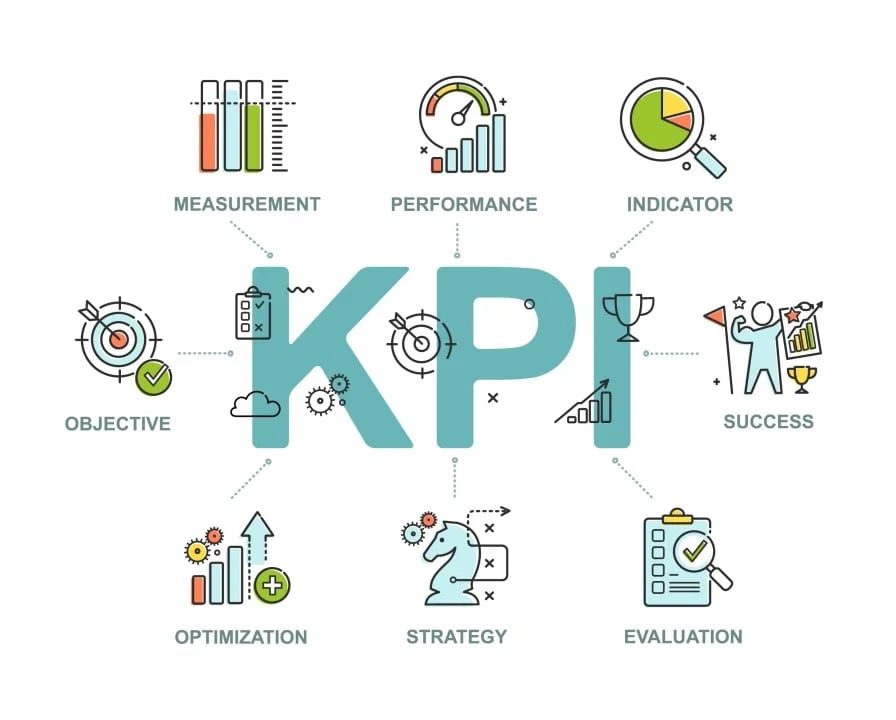
KPIs are vital indicators that help you measure the success of your digital marketing efforts. By tracking key metrics related to your website performance, customer engagement, and lead generation, you can fine-tune your strategies to drive growth for your business. Whether you’re using social media to enhance your brand or working with experts like Mister Nguyen Agency for design, understanding these metrics allows you to make data-driven decisions that resonate with your customers. In this post, we’ll investigate the definition of KPIs, explore valuable metrics, and provide examples to enhance your marketing approach.
Understanding Digital Marketing KPIs

The role of Digital Marketing KPIs is important in driving your online strategy and achieving your business goals. These key performance indicators help you measure effectiveness, track progress, and identify areas for improvement in your campaigns aimed at reaching potential customers and converting leads. By understanding these metrics, you can make informed decisions that enhance your website performance and overall marketing efforts.
Definition of KPIs
After defining your marketing objectives, KPIs (Key Performance Indicators) represent measurable values that demonstrate how effectively your business is achieving those goals. In the context of digital marketing, KPIs might relate to website traffic, lead generation, conversion rates, or engagement metrics on social media platforms. They provide a framework for evaluating success and guiding future strategies.
Importance of KPIs in Digital Marketing
Marketing KPIs are important for steering your digital marketing strategy effectively. They provide you with quantifiable insights into how various aspects of your campaigns are performing, enabling you to optimize efforts toward better engagement, customer satisfaction, and ultimately, sales. By continuously analyzing these metrics, you can pivot your approach in real time, ensuring that your resources are directed toward the most impactful activities.
Hence, understanding the importance of KPIs in digital marketing is imperative for your business’s growth. Utilizing tools like those offered by Mister Nguyen Agency can help you effectively track your KPIs and improve your social media presence and brand design. By focusing on the right metrics related to your website and lead generation efforts, you can connect with your target customers more effectively, enhancing both user experience and business outcomes.
Key Digital Marketing Metrics

Now that you understand the importance of digital marketing KPIs, it’s important to look into the key metrics that will help you measure your online performance. By tracking these metrics, you can gauge the effectiveness of your marketing efforts, gain insights into your audience’s behavior, and ultimately make informed decisions to optimize your website and business strategies. Utilize these metrics to convert visitors into customers and develop tailored approaches that resonate with your audience.
Traffic Metrics
With traffic metrics, you can analyze the number of visitors coming to your website from various channels, such as organic search, social media, and paid ads. This data allows you to determine which sources are driving the most leads and helps you recognize trends in customer behavior. By understanding your site’s traffic, you can optimize your marketing strategies to enhance user experience and drive more qualified traffic to your business.
Conversion Metrics
Beside traffic metrics, conversion metrics help you evaluate how effectively your website turns visitors into leads or customers. Key indicators include conversion rate, average order value, and bounce rate. These metrics provide valuable insights into your marketing campaigns’ performance and give you a clear picture of how your audience interacts with your website. By focusing on these metrics, you enhance your ability to make data-driven decisions that boost sales and grow your business.
Also, tracking conversion metrics enables you to identify areas for improvement within your sales funnel. For instance, you may discover high traffic but low conversions, indicating potential issues in your landing pages or calls to action. By analyzing these metrics, you can refine your digital marketing strategies to effectively guide customers through the buyer’s journey, ultimately increasing your lead generation and revenue for your brand.
Engagement Metrics
Metrics for engagement assess how users interact with your content across various platforms. Examples include pages per session, average session duration, and social media interactions. These metrics reveal the level of interest and participation customers have with your website and social media channels. By optimizing your content and user experience, you can enhance engagement and create lasting relationships with your audience.
Metrics provide you with critical insights into how customers perceive your brand and influence future content strategy. A high engagement rate indicates that you effectively resonate with your audience, allowing you to refine your messaging. Moreover, monitoring how your customers engage with your posts helps you identify trends and preferences, enabling you to craft compelling marketing campaigns that attract and retain your audience’s attention while driving growth for your business.
Setting Effective KPIs

Once again, it’s imperative to establish effective KPIs that align with your digital marketing strategy. These metrics not only help you measure performance but also ensure that every effort contributes to your overall business objectives. By carefully selecting metrics that matter most to your website and its audience, you can derive actionable insights that drive growth and enhance customer engagement.
SMART Criteria
KPIs should be SMART: Specific, Measurable, Achievable, Relevant, and Time-bound. This framework ensures that your metrics are clear and practical, allowing you to effectively track progress and make data-driven decisions. By employing the SMART criteria, you can set realistic goals that guide your marketing efforts toward generating quality leads and reaching your customers effectively.
Aligning KPIs with Business Goals
Effective alignment of your KPIs with business goals is vital for your marketing success. Each KPI should be directly linked to the desired outcomes of your website and overall business strategy.
A well-aligned set of KPIs helps you maintain focus on what truly matters—achieving your business objectives. For instance, if your goal is to boost customer satisfaction, your KPIs should reflect performance metrics around customer engagement and feedback. Moreover, it’s important to regularly revisit these alignments to adapt to market changes and evolving customer needs. By ensuring your KPIs resonate with your overall business goals, you can strategically harness the power of digital marketing through platforms like social media or by collaborating with an experienced agency, such as Mister Nguyen Agency, to design brand strategies that truly resonate with your target audience.
Examples of Digital Marketing KPIs

Despite the vast array of digital marketing KPIs available, choosing the right ones for your business can enhance your strategy dramatically. These KPIs serve as beacons, guiding your campaigns toward effective engagement with your customers. From tracking conversion rates to understanding social media engagement, selecting the appropriate metrics can allow you to accurately assess the impact of your online efforts while refining your approach to meet your goals.
Commonly Used KPIs
About the commonly used KPIs, you should focus on measurable metrics that directly reflect the performance of your marketing initiatives. Key performance indicators such as website traffic, conversion rates, and customer acquisition cost provide significant insight into how effectively your strategies are performing. These metrics help you gauge how well you are attracting leads and retaining customers, making them crucial for any successful digital marketing plan.
Industry-Specific KPIs
Along with general KPIs, industry-specific metrics can provide deeper insights tailored to your unique business needs. These specialized KPIs can vary greatly across different sectors, highlighting what truly matters to your customers and leads. Understanding these metrics will allow you to fine-tune your marketing efforts and focus on areas that contribute to your business’s growth and success.
Marketing in a specific industry often requires customized KPIs that resonate with your target audience’s behavior and preferences. For instance, e-commerce businesses might prioritize cart abandonment rates and average order value, while service-based companies may track customer satisfaction scores and retention rates. By leveraging these specific metrics through platforms like Mister Nguyen Agency, you can refine your digital marketing strategy, ensuring that your business not only attracts customers but also fosters lasting relationships and brand loyalty.
Tools for Tracking KPIs

For effective digital marketing, utilizing the right tools to track KPIs is necessary for gauging success. These tools help you monitor your strategies, adjust your approach, and optimize your marketing efforts to drive better results for your website and business. By analyzing your KPIs, you can ensure that your marketing campaigns resonate with your customers and yield the leads you seek.
Analytics Tools
Among the many options available, analytics tools such as Google Analytics and Adobe Analytics stand out for tracking website performance. These platforms provide valuable insights, allowing you to monitor traffic sources, user behavior, and conversion rates, enabling you to make data-driven decisions tailored to your customers’ needs.
Marketing Automation Platforms
Along with analytics tools, marketing automation platforms like HubSpot and Mailchimp can enhance your KPI tracking capabilities. These platforms help streamline tasks such as email marketing, social media management, and lead nurturing, which can ultimately boost your engagement with customers and increase your leads.
And by leveraging marketing automation platforms, you not only save time on repetitive tasks but also gain access to advanced analytics features. They allow you to track customer interactions across various channels, helping you identify trends and optimize your content strategies based on actual customer behavior. This data-driven approach will enable your business to create more targeted campaigns and ultimately convert leads into loyal customers, allowing your brand to excel in the digital landscape.
Analyzing and Interpreting Data

All your digital marketing efforts hinge on the accurate analysis and interpretation of data. By closely examining the right KPIs, you can uncover patterns and insights that guide your strategies. This enables you to assess the effectiveness of your campaigns across different platforms, such as social media and your website. Ultimately, this leads to more informed decisions that can improve your business performance and increase customer engagement.
Data Analysis Techniques
Techniques for analyzing data effectively can include segmentation, regression analysis, and trend analysis. By employing these strategies, you can break down complex data sets into actionable insights tailored to your business goals. Utilizing tools such as Google Analytics and social media dashboards will help you identify which areas drive leads and attract customers. Understanding these techniques equips you with the knowledge to optimize your marketing initiatives.
Making Data-Driven Decisions
Techniques for making data-driven decisions rely heavily on assessing your KPIs and interpreting what they reveal about your customers’ behaviors. By strategically applying these insights, you can refine your marketing approaches and tailor your campaigns to meet customers‘ needs more effectively. Data-driven decisions ensure that your business remains agile and responsive to market changes, enhancing customer satisfaction and driving lead generation.
In fact, the key to successful data-driven decisions involves continuous monitoring and adapting based on real-time insights. As you analyze customer interactions and engagement metrics, your strategies can evolve to reflect their preferences. This not only contributes to a stronger brand presence but also to higher conversion rates, as you align your marketing efforts with your target audience. By making informed choices, you solidify your business’s position and authority in the market, benefiting from enhanced loyalty and engagement from your customers.
Conclusion
On the whole, understanding Digital Marketing KPIs is imperative for you to effectively measure your website’s performance and align your strategies with your business goals. By tracking the right metrics, you can gain valuable insights into your customers and improve your lead generation efforts.











